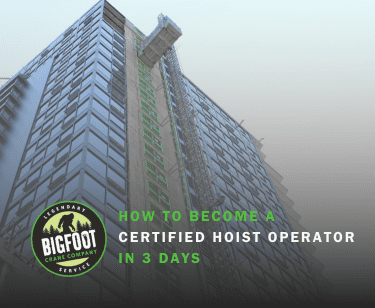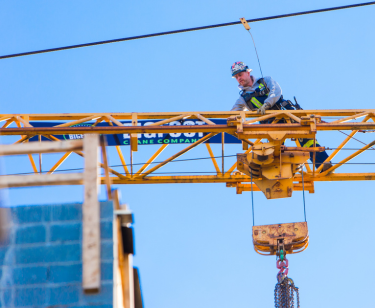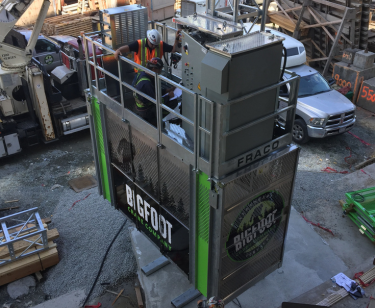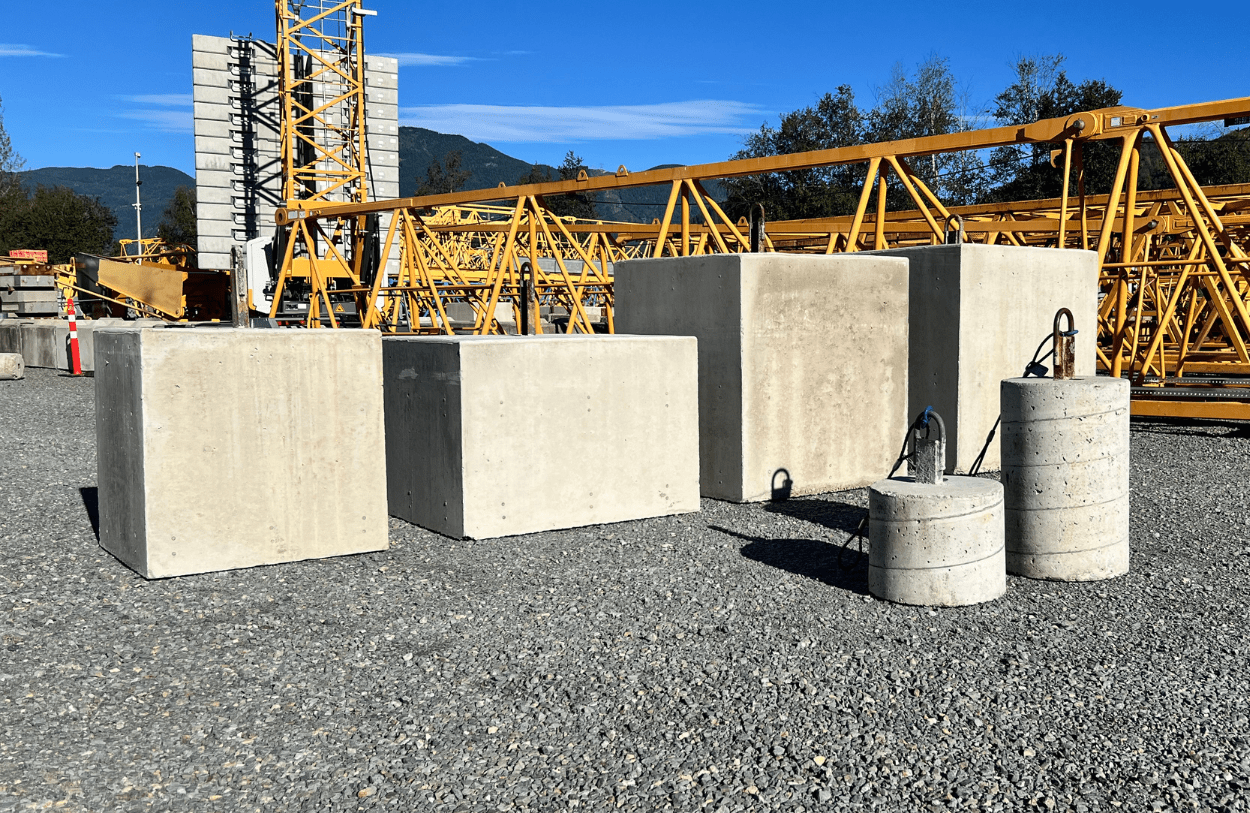Entering the construction industry as a hoist operator offers a unique opportunity to play a vital role in the building of infrastructures like buildings and bridges. Hoist operators manage the equipment necessary for lifting and transporting materials vertically, ensuring the flow of operations on a construction site. Here is an extensive guide on becoming a certified hoist operator with Bigfoot Academy.
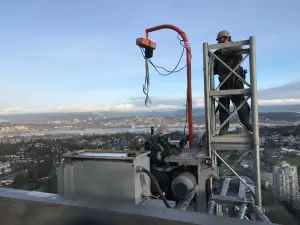
Understanding the Role of a Hoist Operator
A hoist operator is essential on construction sites, responsible for operating the hoists that lift and transport materials and equipment. The job requires a keen understanding of mechanical systems and a strong commitment to safety protocols. It’s a role suited for those who enjoy practical, hands-on work and are capable of following detailed instructions.
The Importance of Hoist Operators
Hoist operators are crucial in ensuring the efficiency and safety of construction projects. They are involved in critical tasks that require precision, such as moving heavy materials to heights, across buildings, and positioning them accurately. The role is not only about operating the machinery but also about understanding load dynamics, machine maintenance, and safety checks.
Step 1: Meet Basic Requirements
The journey to becoming a certified hoist operator begins with fulfilling some basic prerequisites:
- Age and Education: You must be at least 18 years old and have a high school diploma or GED.
- Physical Requirements: The job can be physically demanding, requiring good hand-eye coordination, manual dexterity, and the ability to handle physical exertion.
- Legal Requirements: A valid driver’s license is typically necessary, as it may be required to operate certain types of hoisting equipment or for employment prerequisites.
Step 2: Enroll in a Certified Training Program
Quality training is crucial. Bigfoot Crane Academy offers a Hoist Operator Training Course that equips students with the knowledge and skills needed to operate hoists safely and efficiently. The course covers:
- Technical Knowledge: Learning the mechanics of hoists, including electrical, hydraulic, and cable systems.
- Safety Training: Understanding OSHA regulations, performing safety checks, and emergency procedures.
- Operational Skills: Hands-on training with various types of hoists to gain practical experience in a controlled environment.
Step 3: Gain Practical Experience
While theoretical knowledge is important, real-world experience is invaluable. Training programs often include practical modules that allow students to operate hoists under supervision. This experience is crucial for building confidence and competence, helping students to understand the nuances of machine operation in live scenarios.
Step 4: Pass the Certification Exam
After completing a training program, you will need to pass a certification exam. This exam tests your knowledge of hoist operation principles, safety regulations, and practical skills. Passing this exam demonstrates your capability to work safely and effectively as a hoist operator.
Step 5: Obtain a License
Depending on your location, you may need a specific license to operate hoists professionally. This process usually involves submitting proof of certification, undergoing a background check, and possibly a physical examination. It’s important to check the specific requirements in your area to ensure compliance with local laws and regulations.
Step 6: Continuous Learning and Advancement
The field of hoist operation is ever-evolving, with new technologies and safety standards continually emerging. Staying updated through ongoing education and training is essential. Many operators attend additional courses and obtain higher-level certifications to advance their careers and increase their expertise.
Why Bigfoot Crane Academy?
Choosing Bigfoot Crane Academy for your training offers several advantages:
- Expert Instructors: Learn from experienced professionals who bring real-world insights and extensive knowledge to their teaching.
- State-of-the-Art Facilities: Train in modern facilities equipped with the latest hoisting equipment, providing an ideal learning environment.
- Comprehensive Curriculum: Benefit from a curriculum that balances theoretical knowledge with extensive practical training.
Preparing for a Career as a Hoist Operator
As you consider a career as a hoist operator, it’s important to be prepared for the challenges and rewards of the job. The role requires attention to detail, a high regard for safety, and the physical capability to manage demanding tasks. With the right training and mindset, a career as a hoist operator can be highly rewarding, offering stability, competitive wages, and the satisfaction of playing a key role in building the future.

